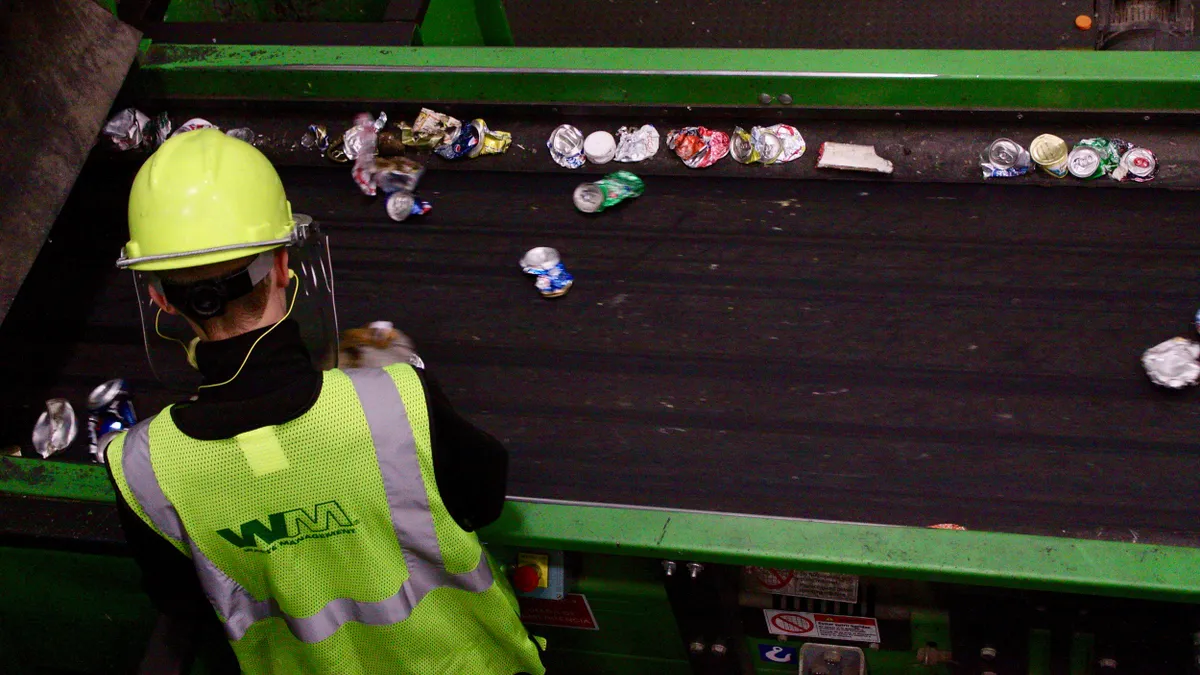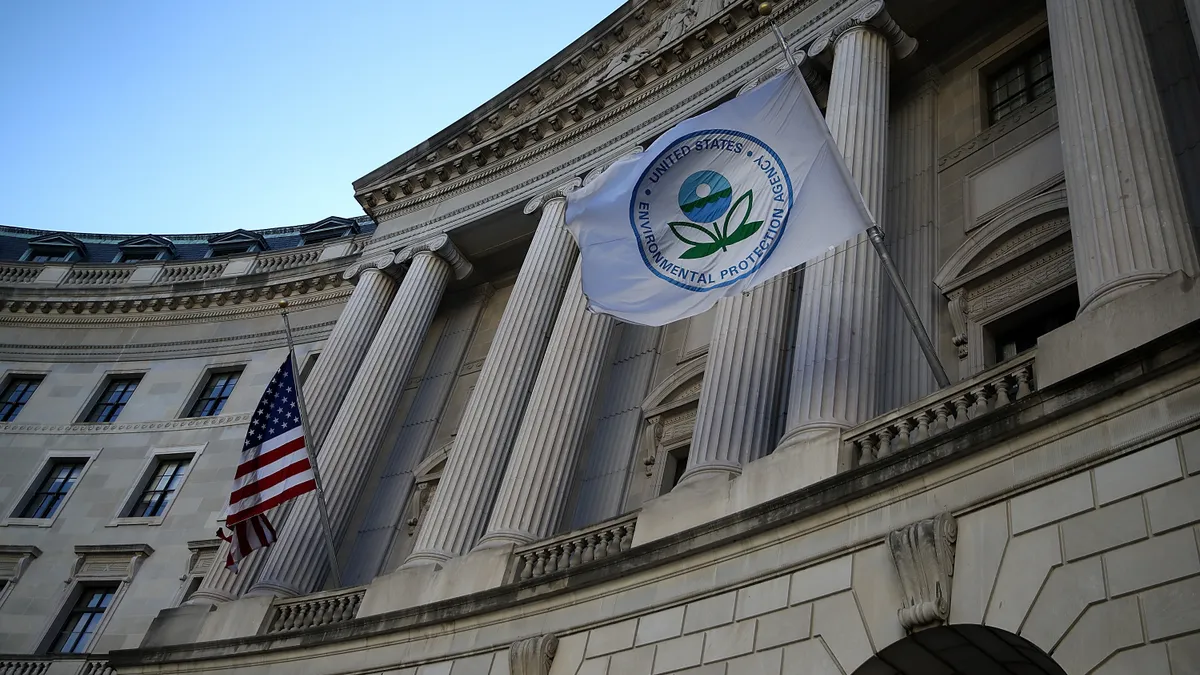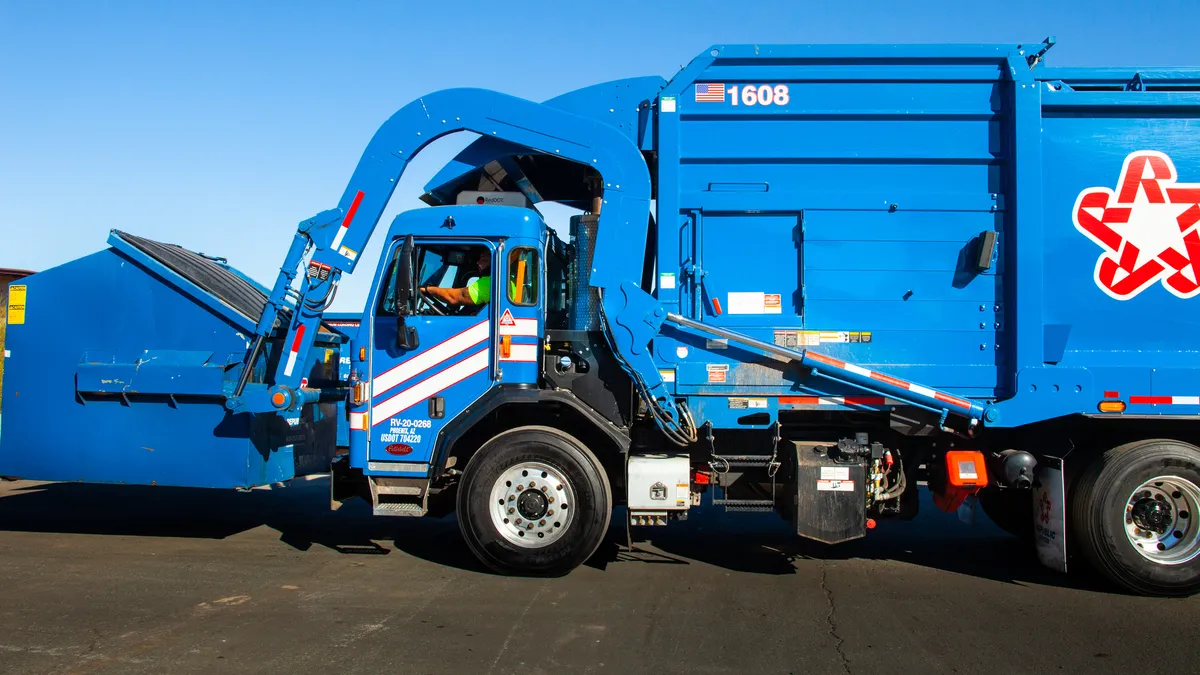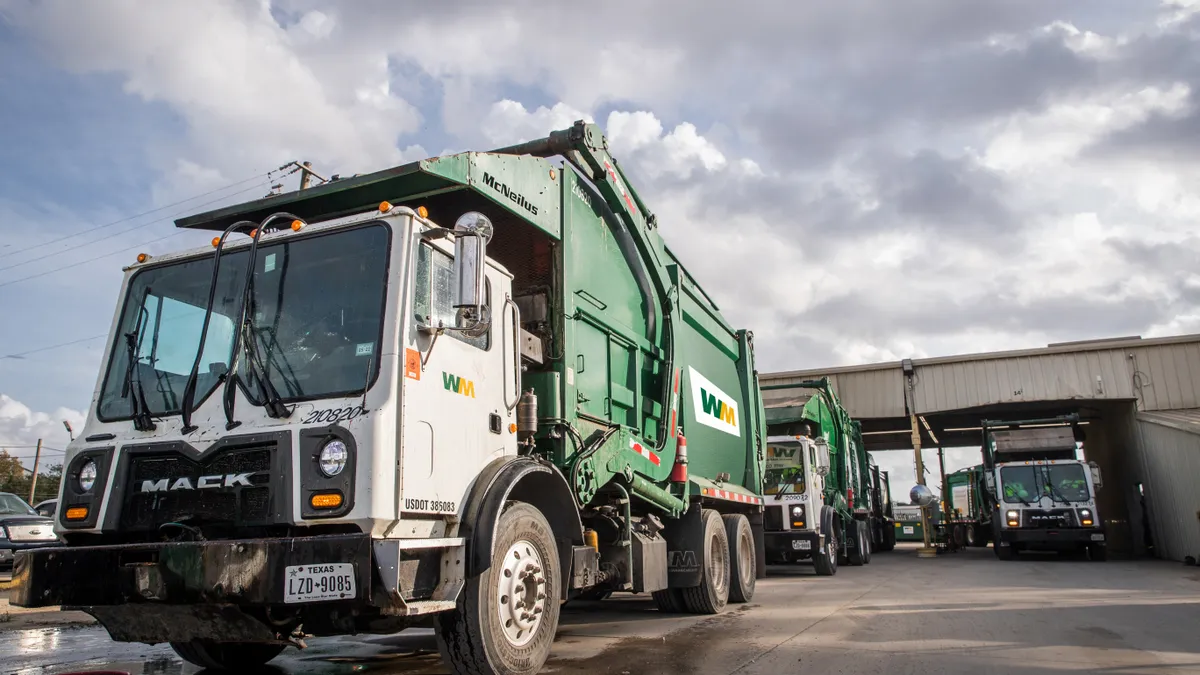Employees entering the workforce today are among the most diverse in history, and WM’s hiring, training and retention programs are going through some updates to meet shifting needs.
Kelly Rooney, WM’s new chief human resources officer and chef diversity & inclusion officer, grew up in the waste industry and got her first job at WM when she was a teenager with a work permit. She describes herself as a “second-generation garbage kid” who found acceptance and community in the business.
Rooney worked in operations and area manager roles for WM before joining the HR leadership team in 2021 and the C-suite the following year. She’s at the helm during a time when workers are looking for more flexible, supportive work environments and clearer paths to promotions than previous generations.
Rooney talked with Waste Dive about the ways WM is upgrading its leadership and job training trajectories to attract more types of employees, particularly people who are new to the waste industry. She also talked about the importance of listening to frontline workers’ experiences and integrating employee feedback into everything from job descriptions to health care and educational offerings.
This conversation has been edited for length and clarity.
You’ve been in this industry for more than 30 years, but you’re coming into this particular role during a time when major factors like COVID-19, racial justice organizing and the Great Resignation have made many workplaces rethink their hiring and retention practices. What perspective and ideas are you bringing to your role?
After years of being in the field, at times it felt like there was a disconnect between HR and our frontline folks. I jumped at the chance to work in the space because I bring credibility and relatability.
I knew I was gay from the time I was a little kid. I grew up in a big Irish Catholic family, and when I started working with our frontline teams as a teenager, I really found a sense of belonging that I hadn't previously felt anywhere else. That has really made me stay in love with our business and with our folks. That’s the perspective that I bring to the role.
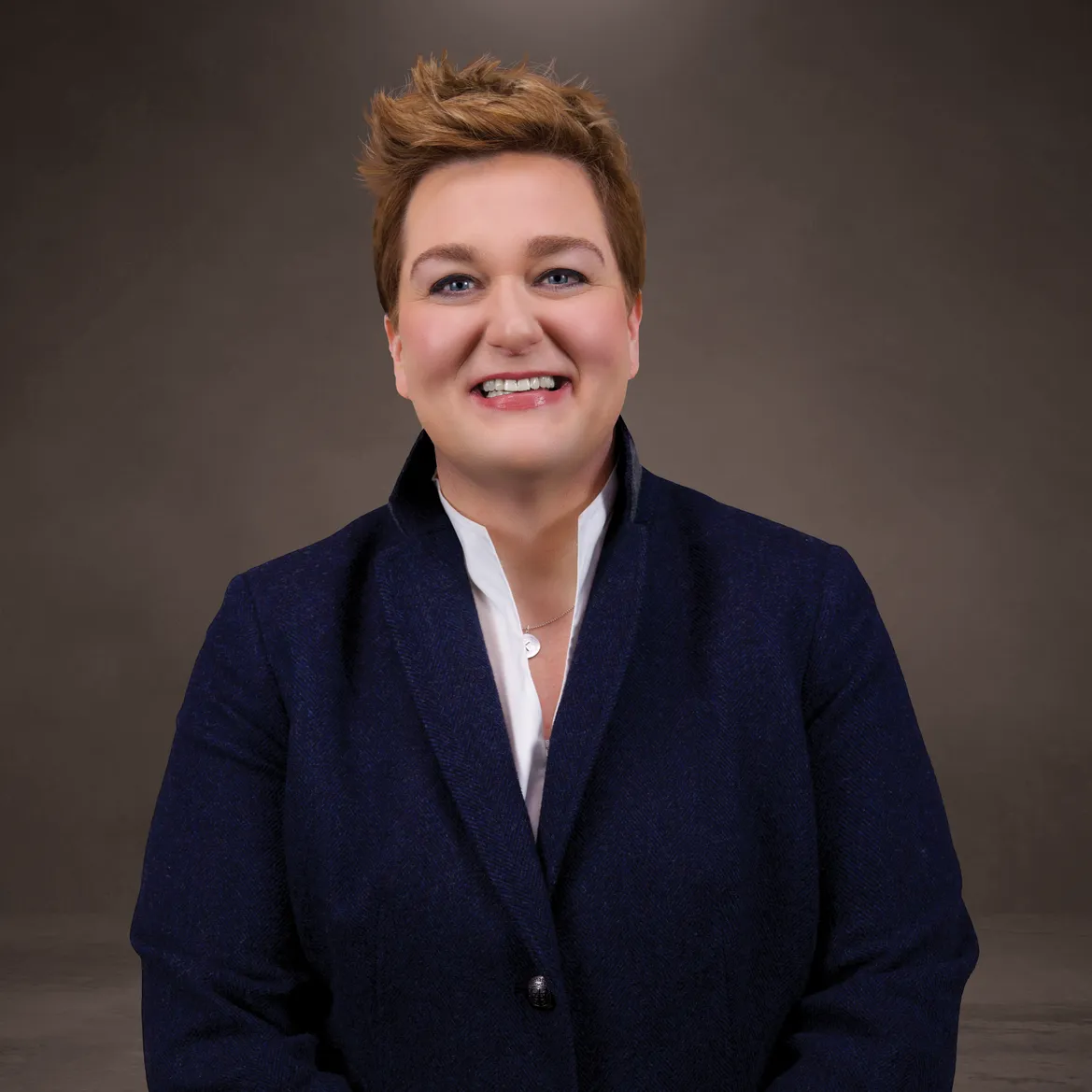
We have to shape the organization holistically to really ensure that WM is a great place to work and can welcome and support all sorts of people. In evolving the organization, we have to attract, hire and onboard folks in different ways. There was a time when we almost exclusively hired folks with industry experience or very adjacent experience. We didn't have a robust way of hiring for competency and then teaching people the business.
You’ve mentioned your ability to relate to and work one-on-one with frontline workers. What feedback do you get from employees, and how does that get integrated into day-to-day changes and improvements?
I want folks to stay with WM for a long time. If someone starts as a driver but there aren’t many roles to go to after that, my choices are to either enable them to find a path within WM or they’re gonna leave and find it somewhere else.
There were a couple of things that we heard really loud and clear from our frontline folks. One was that they had a desire to be able to move into leadership roles or professional roles, but we had experience and education requirements that were preventing folks from believing that they had a real opportunity. So we rewrote our job descriptions [so some jobs no longer require college degrees.] We don't need to have these educational requirements when we can evaluate someone's skills, competencies and results.
I was at a [WM location] a couple of weeks ago and the operations manager asked to give me a hug. I've never met him before. He left his last job as a transportation company driver because he couldn't move up without a bachelor's degree. He drove for us for a few years, and then became a manager and now is creating great results for his people and for the organization. And he didn't need a bachelor's degree to do that.
The other thing we were missing was that folks were interested in a manager or other leadership position, but they didn’t have any formal training. We created [and updated] these professional development programs as an in-between step. So you don't get the full responsibility of a leadership role, but … they get the time to learn and develop skills and also learn about the business and develop their business acumen so that when they get placed in a leadership role, they're set up for success. This is based on feedback from folks who secured a role, but then there was no pathway for them afterwards.
We also redesigned some roles, starting with frontline leaders. We have the learning and development program, but folks were telling us, “I don't have time to spend with my people and practice what I learned because I'm so burdened with all this task administration and paperwork.” So we redesigned some roles, like our route manager role. Our routing is automated, and there's a bunch of data management that happens every day. Managers aren’t the best people to do the data management, they’re the best folks to be coaching and supporting our drivers. We want those folks to have the time to support people, particularly when folks are coming to WM without experience.
Being able to attract talent and upskill [beginners internally] is also really important. We have state of the art training centers in Florida and Arizona where we run a CDL training school. We train folks to be technicians.
The programs you just mentioned recently went through a revamp to fit employee needs better. What other new or updated workplace programs will WM be rolling out soon?
We’re looking to increase the size of the professional development cohorts. This year, we're also piloting an external leadership development program with the Center for Creative Leadership [a nonprofit leadership development provider] and we're going to expand that in the coming years to include multiple tracks. So not only is there an internal pathway, it’s supported by external learning and development opportunities that we'll continue to build on in the future.
We're also undergoing a comprehensive benefits review. Our demographics have shifted over the past couple of years, and folks have helped us understand that both child care and elder care is really, really important, but often hard to find and really expensive. We're working to solve for that. We’re looking to expand other healthcare needs, including mental health and well-being, which we're hearing more about from our folks.
For our educational benefits [offering employees access to fully-funded education programs including undergraduate and graduate degrees], we were one of the first to also offer this for spouses and dependents. And now we’re looking at some tools that use AI to help be career advisors and help folks who are already in the workforce identify ways to pursue things they're interested in.
Beyond changing the job descriptions and requirements, how are you attracting people to the company today versus how you attracted applicants in years past, especially when WM wants to see more diverse applicants?
We want WM to be a place where everyone feels welcomed and supported, and that starts with cultivating an environment that demands that folks speak and behave in ways that are respectful. DE&I is meant be holistic. It’s not a separate and distinct program — it is very much front and center of the way we do business, and everybody plays a role in that.
We have a couple of important DEI goals. One is increasing our female representation. We want to create an environment where women feel comfortable and feel supported. Another is increasing the racial and ethnic minority representation in leadership roles. Our biggest percentage of diverse folks is at the front line, and we didn't have a meaningful pathway for those folks to move into leadership roles so the team reflects the people in the communities we serve.
This is a different business than 30 years ago. Where we look for talent and the way we source talent is different. We’re leveraging a connection to the military in ways that we haven't before. It gives us great access to folks with all sorts of backgrounds and all sorts of diversity and who have experience that is more similar to our industry. We also work with [historically Black colleges and universities], and we work with a number of second-chance programs through our Innovative Employment Pathways program.
We also work with students in high school and trade schools. When you look at the percentage of folks who are attending or enrolling in four-year colleges, it's a meaningful drop. Leveling the playing field and making roles more accessible to folks who don't have a college degree is really important.


